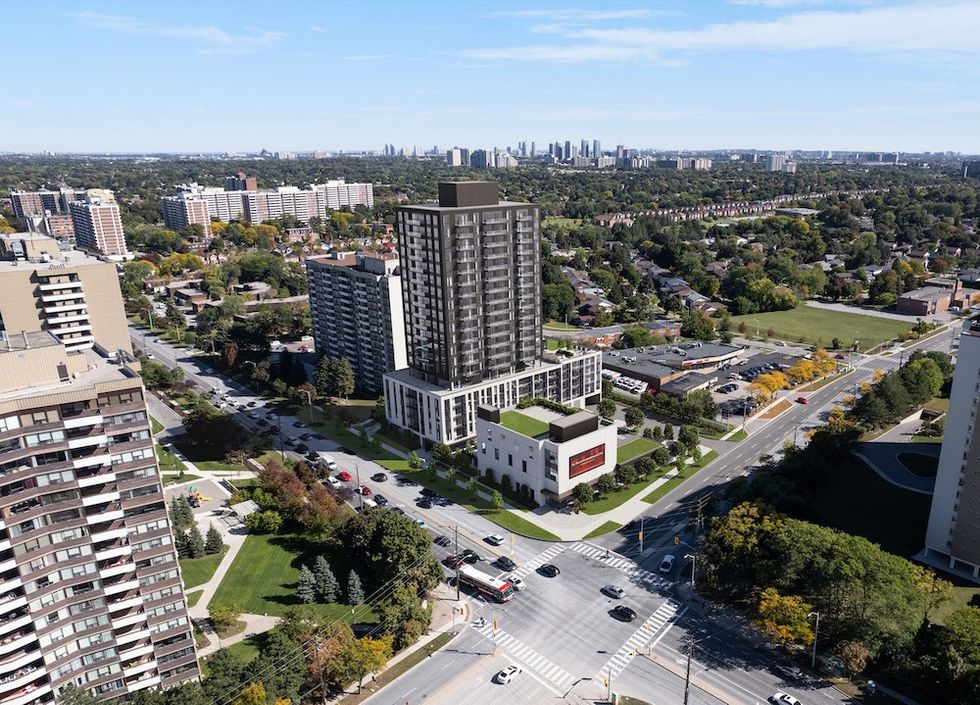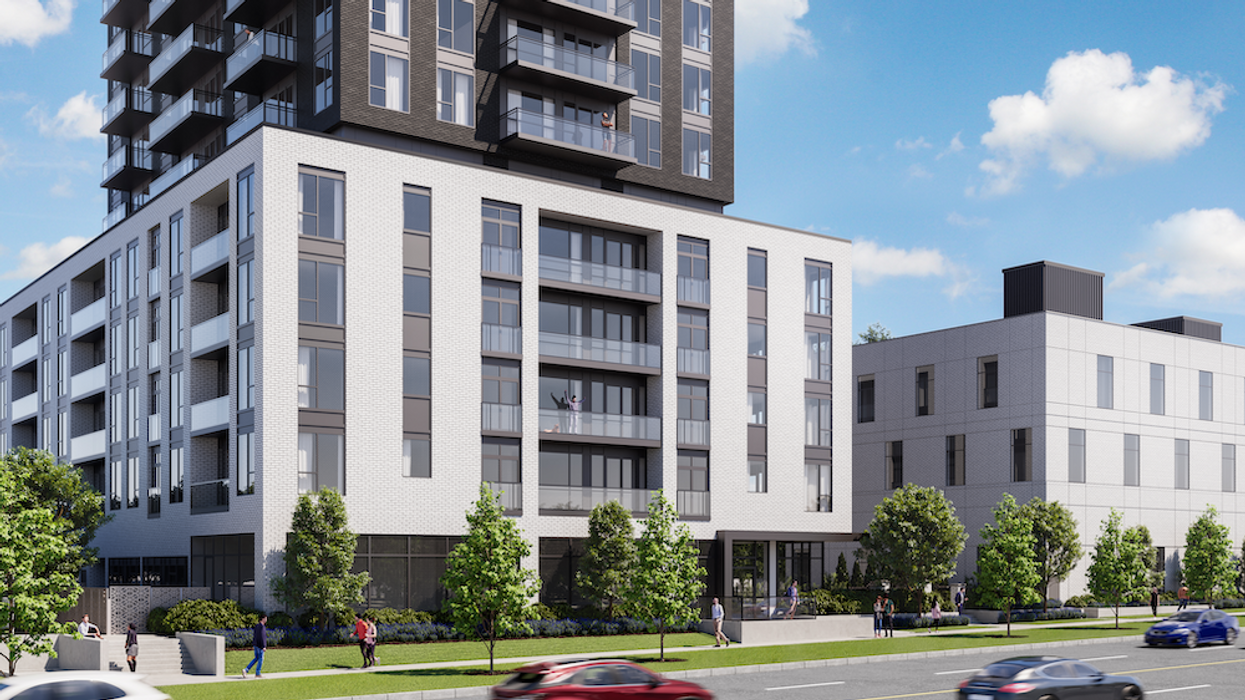For several decades, the Bridlegrove Bible Chapel has been serving Toronto’s L'Amoreaux neighbourhood from a squat red-brick building set well back from the southeast corner of Finch Avenue East and Pharmacy Avenue.
The non-denominational church, completed in the mid-1970s, is not only home to its congregation but also the daycare centre it has operated on site for the past 43 years. But now, with a plan for expansion and a need for cash to support it, the church is proposing a new 20-storey condo tower on part of the 1.5-acre parcel of land it occupies at 2575 Pharmacy.
“Part of this project is definitely the housing piece -- they wanted to be a part of a solution to a big problem,” says Michael Da Silva, Managing Partner at Blackthorn Management, which Bridlegrove Bible Chapel hired on a year ago as project managers for the proposal.

The other part of the project is establishing a highly visible and welcoming new community hub, right at the corner of Finch and Pharmacy, rather than where the church currently stands, behind a sprawling lawn and parking lot. “They for years have struggled with trying to show the community who they are, even though they do a lot within it,” Da Silva tells STOREYS of the easy-to-miss church.
Overall, the proposal includes 244 condo units in the high-rise as well as a separate three-storey church building, with a ceremonial courtyard as a buffer between the two structures. The plans for the church building include a main-floor auditorium, offices and classrooms on the second and third levels, and a rooftop amenity for the daycare, which would continue to operate in the new digs and benefit from an outdoor playground towards the back of the lot, too.
The variety of units proposed reflects the church’s desire for a family-focused development, with 72 two-bedroom units and 25 three-bedroom units proposed. The remainder are bachelor, one-bedroom, and one-bedroom-plus-den dwellings (19, 51, and 77, respectively).
“The intent is that it’s going to be market-rate [condos],” Da Silva says. “Part of the reason for that is the vision that the church has -- it needs to be financed,” he adds, noting, “That was the only solution in which they could make it work as what they intend; if they were getting into the rental-housing side, then they could never do the stuff they want to do with the community-hub piece.”
Discussions about possible programming for the future community hub are ongoing, but the development team suggests it could host a community drop-in for kids after school, seniors activities, resources for new immigrants, including ESL classes. “It’s a community in need of various services and facilities, and there’s an opportunity for them to be a resource centre for the broader community,” Yurij Pelech, principal at Bessant Pelech Associates Inc., land-use planners on the project, tells STOREYS.
The new church building would also be far more accessible than the existing structure. “Right now, they have no accessibility at all in the building, and with an aging population, this building will have full accessibility, elevator access, underground parking -- those are huge benefits to them in the long run,” Da Silva notes (two levels of underground parking are planned to link the hub and condo tower).
During the development-application process -- zoning bylaw amendment and site-plan applications were submitted to the city earlier this month -- the land will be severed so that the church can maintain ownership of its own building. To execute the project, the church has brought on a real estate developer, although specifics are under wraps for the moment. The unidentified developer would split proceeds from condo sales with the church.
The bible chapel’s decision to offer up its land for redevelopment is an increasingly common path for religious groups to follow in the GTA and beyond. This summer, for example, North Toronto’s Agricola Finnish Lutheran Church proposed building a 12-storey mixed-use tower on its land. The new building would provide improved church facilities and a venue for a Finnish cultural hub.
Many churches are looking to leverage their land to finance the construction of new facilities, launch new community initiatives, and more.
“Not-profit cultural groups, church groups are stepping up and getting involved in the provision of housing because we’re at a point where affordability is an issue,” Pelech explains, adding that the Bridlegrove Bible Chapel project is yet another example of such activity. “This was an opportunity to work with a church group that has an underutilized underdeveloped parcel of land, centrally located in Scarborough, close to transit, to do something of that sort.”





















